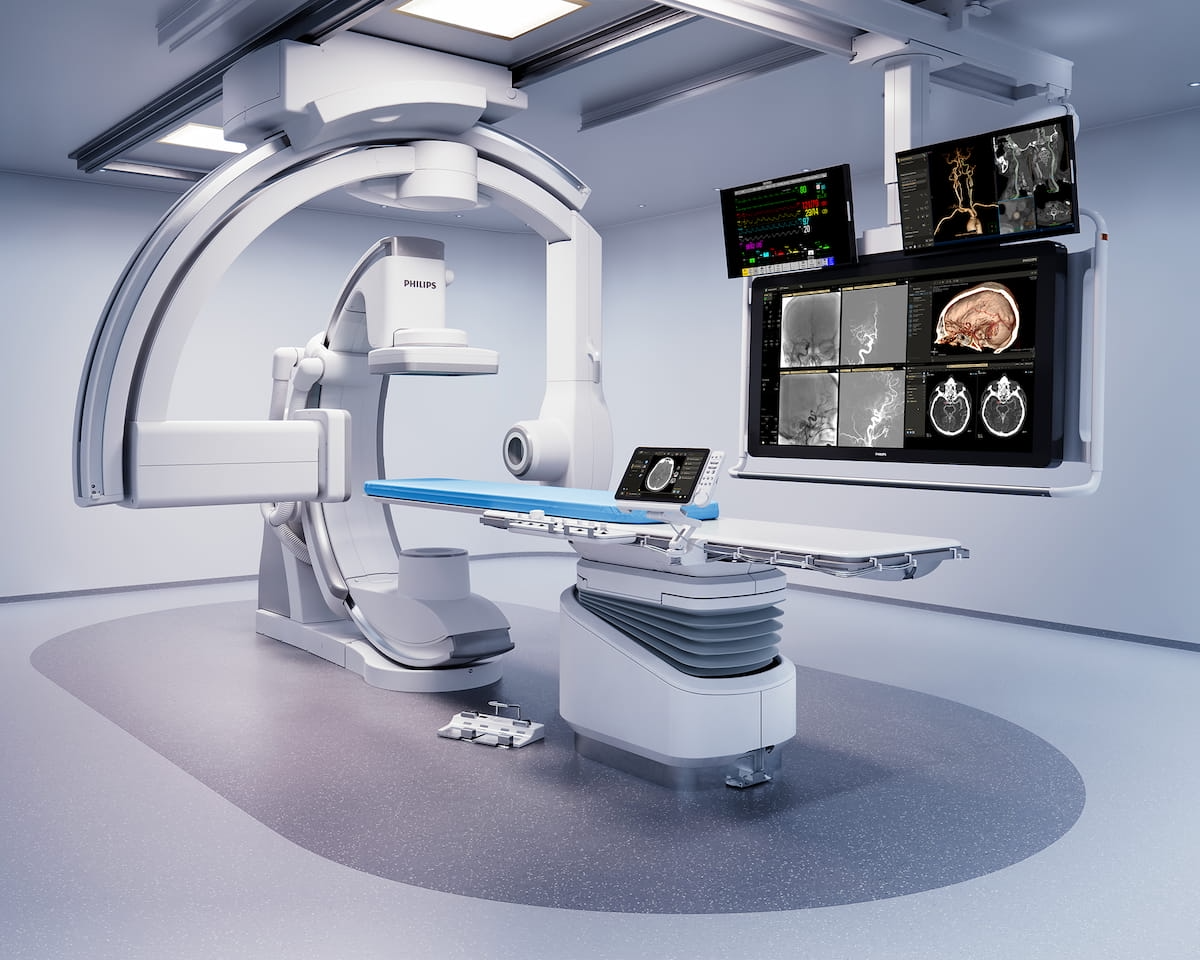Philips Set to Launch Enhanced Neurovascular Imaging System at ECR
Emphasizing upgraded angio suite capabilities as well as improved 2D and 3D imaging, Philips will unveil the Azurion Neuro Biplane System at the European Congress of Radiology.
In order to help enhance interventional workflows for neurovascular procedures, Philips is slated to debut the Azurion Neuro Biplane System at the European Congress of Radiology (ECR).
The Azurion Neuro Biplane System offers an integrated combination of 2D and 3D imaging with low-dose imaging capabilities to enhance stroke assessment and timely precision intervention in neurovascular procedures, according to Philips.
Designed to enhance interventional workflows for stroke assessment and neurovascular procedures, the Azurion Neuro Biplane System is slated to launch at the European Congress of Radiology (ECR). (Image courtesy of Philips.)

“Working closely with leading interventionists, we designed the latest Azurion neuro biplane (system) to meet their requirements of superior patient care, optimized angio suite performance, and efficient return on investment,” said Mark Stoffels, the business leader of image guided therapy systems at Philips. “Together, I am confident we can continue to reduce the impact of stroke, helping more patients to recover faster and reducing long-term impact on their health.”
The company noted that other key features with the Azurion Neuro Biplane System include automated beam rotation, improved C-arm rotation and X-ray detector positioning flexibility.
Newsletter
Stay at the forefront of radiology with the Diagnostic Imaging newsletter, delivering the latest news, clinical insights, and imaging advancements for today’s radiologists.
SNMMI: Can 18F-Fluciclovine PET/CT Bolster Detection of PCa Recurrence in the Prostate Bed?
June 24th 2025In an ongoing prospective study of patients with biochemical recurrence of PCa and an initial negative PSMA PET/CT, preliminary findings revealed positive 18F-fluciclovine PET/CT scans in over 54 percent of the cohort, according to a recent poster presentation at the SNMMI conference.
The Reading Room: Artificial Intelligence: What RSNA 2020 Offered, and What 2021 Could Bring
December 5th 2020Nina Kottler, M.D., chief medical officer of AI at Radiology Partners, discusses, during RSNA 2020, what new developments the annual meeting provided about these technologies, sessions to access, and what to expect in the coming year.
SNMMI: What a New Meta-Analysis Reveals About Radiotracers for PET/CT Detection of PCa
June 22nd 2025While (68Ga)Ga-PSMA-11 offers a pooled sensitivity rate of 92 percent for prostate cancer, (18F)-based radiotracers may offer enhanced lesion detection as well as improved imaging flexibility, according to a meta-analysis presented at the Society for Nuclear Medicine and Molecular Imaging (SNMMI) conference.